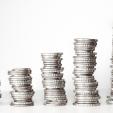Jury out on US dollar rally
New York (Aug 19) The U.S. dollar jumped higher on Monday after a handful of more positive signs on the housing market there that ran counter to the relaxed stance on monetary policy laid out by Federal Reserve speakers so far in August.
Market attention this week is focussed on the annual Jackson Hole meeting of bankers starting on Thursday, but a range of data before then could reinforce the growing optimism about the economy which gripped markets in July.
Hans Redeker, head of global currency strategy at Morgan Stanley in London, said he saw Fed chief Janet Yellen's recent leaning towards keeping policy loose for longer as leaving the market exposed to any indications in the opposite direction.
He said he expected both Yellen and this week's numbers data could pull expectations for how fast U.S. interest rates will rise back the other way, opening the door to more gains for the greenback - up 2.5 percent against the euro since early July.
"All in all, we should see this week that the short-term dollar correction has run its course," he said. "I would position myself in a pro-dollar way."
U.S. inflation numbers are due later on Tuesday.
Sterling, another of the past year's winners among the major currency pairs, was a touch lower ahead of the UK price data.
It has been pushed around by conflicting signals on the chances of official interest rates rising this year. Inflation is expected to dip further below the central bank's 2 percent target, but is far higher than that in mainland Europe.
Markets are also awaiting details on Wednesday of the Bank of England's most recent discussion on interest rates, which some expect may show the first dissenting vote on its policy committee for an immediate rise.
"Softer than expected CPI could see the pound re-test the $1.6660 low of the current move, though follow-through will be limited ahead of the minutes," said Kit Juckes, a strategist with French bank Societe Generale in London.
"The pound is likely to fall from here against the dollar over time, but only when US rates policy shifts."
Source: CNBC













